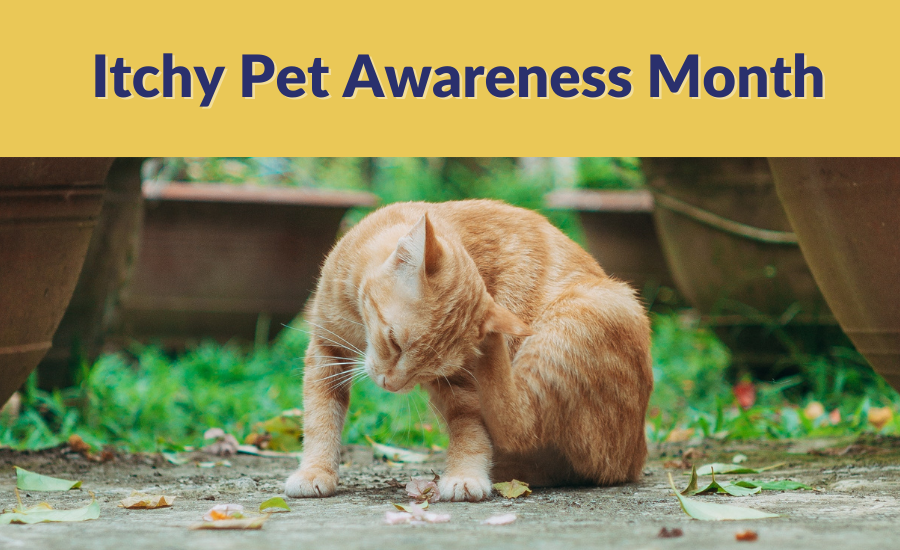More Gift Than Responsibility
Our pets. Our beloved fur babies. What’s better than being all curled up together in your favorite comfy spot, simply enjoying the moment and the bond you share? Nothing, really. Getting to enjoy their companionship is a gift, so it really doesn’t feel like a responsibility when we care for our pets. Since 2019, August has been known as Itchy Pet Awareness Month, so it’s a great time to learn about another aspect of caring for your pet in the ways they need.
I’ll Scratch Your Back
Itchy Pet Awareness Month gives us an opportunity to talk about those pesky itchy skin issues that can disrupt your pet’s life and well-being. Let’s face it – back scratches are people-to-pet currency so they shouldn’t be taken into consideration. Your pet will scratch themselves one in a while, but excessive scratching is often an indicator of an underlying health condition. Let’s talk about what’s typical and when your pet needs additional help.
Such a Common Problem
Excessive pet itchiness is an incredibly common problem. One of the causes may be an underlying skin infection which needs veterinary attention. In addition to infection, Nationwide pet insurance found that, in 2021, skin allergies were the top reason for dogs to go to the vet and the tenth most common for cats. Allergies that affect your pet’s skin are one of the primary causes of their excessive itchiness. Those allergies can be to:
- Food
- Fleas
- Environment
- Season
Many of us are familiar with the skin-related difficulties caused by fleas and flea bites. Fortunately, there are ways to protect your pet from them. Figuring out your pet’s allergies is a little more complicated but is completely doable.
What To Look Out For
Your pet may be scratching themselves too much if they:
- Lick or bite themselves often
- Have frequent ear infections
- Develop red spots or hot spots
- Experience hair or fur loss
- Have irritated patches of skin
Your pet may exhibit other symptoms of skin irritation and itchiness, too, including symptoms that you don’t necessarily attribute to itchiness and skin irritation such as:
- Seeking attention more than usual
- Becoming agitated or excitable
- Being less cooperative than usual
- Issues around food, including consuming feces
Of course, if you’re concerned about new behaviors or symptoms, it’s a good idea to reach out to your pet’s vet.
What Can Be Done?
There are a number of things that might help your pet. A diagnosis is the first step. Your vet will take a thorough history. It will be helpful if you can provide information about when your pet began experiencing extreme itchiness and any changes in their diet or environment. Your vet may suggest running some blood work to check for anything unusual. The second step in determining the cause of your pet’s itchiness may be an elimination diet. This is usually harder for the parent than the pet because you will have to adhere to your vet’s feeding instructions completely and ignore your pet’s pleas for their favorite foods.
For those in Shoreview, MN and the surrounding areas, Minnesota Veterinary Hospital can provide a myriad of other treatment options, too. We may suggest topical creams or ointments, supplements, or even steroids. Contact us so we can figure out how to help your pet feel their very best.

